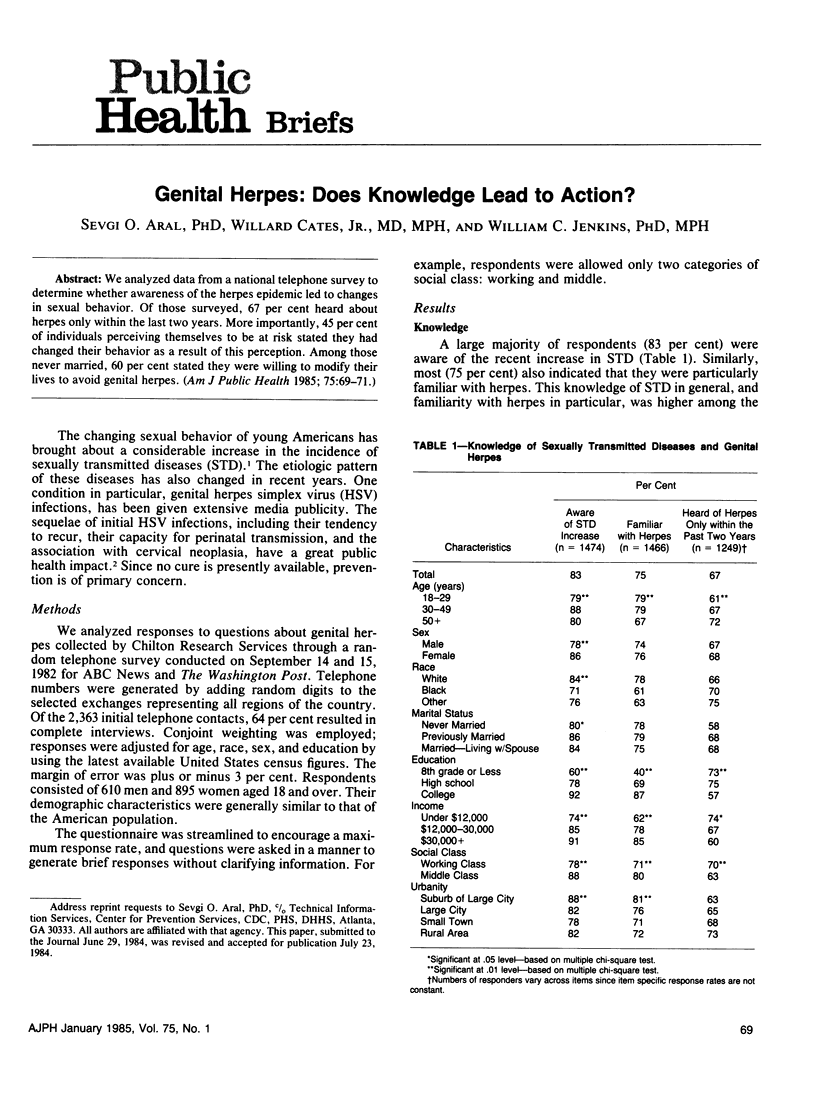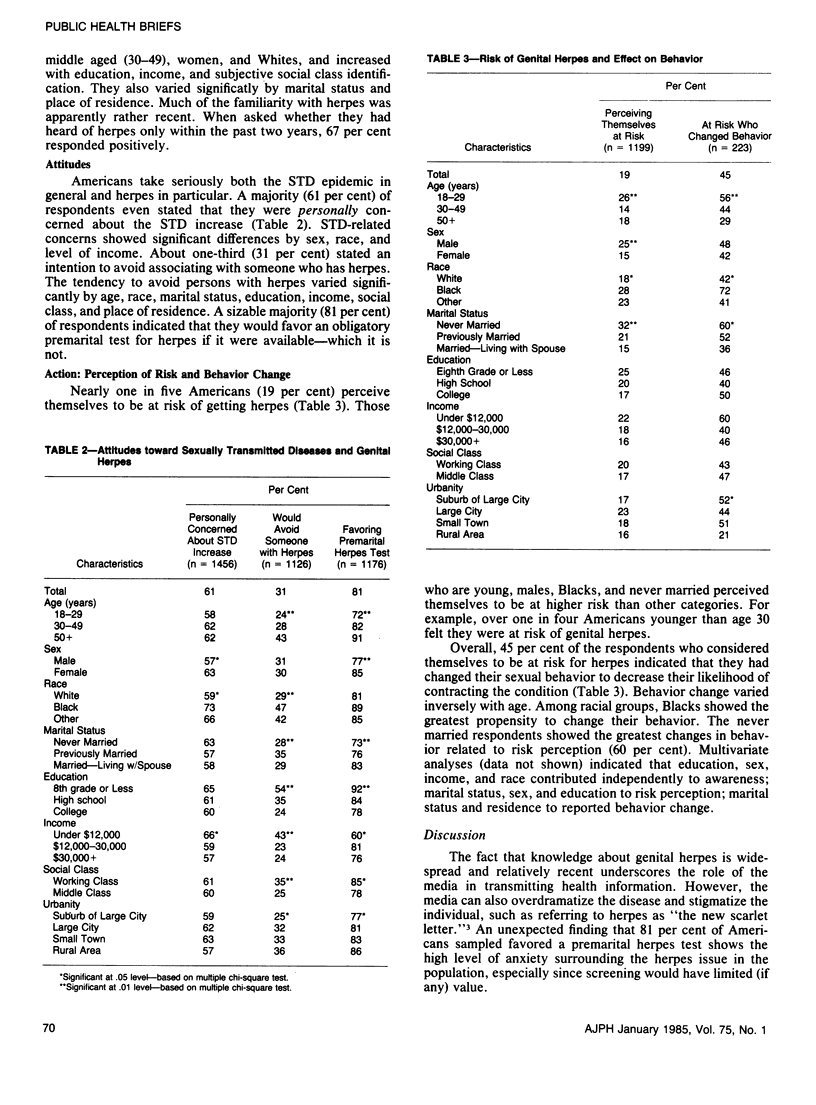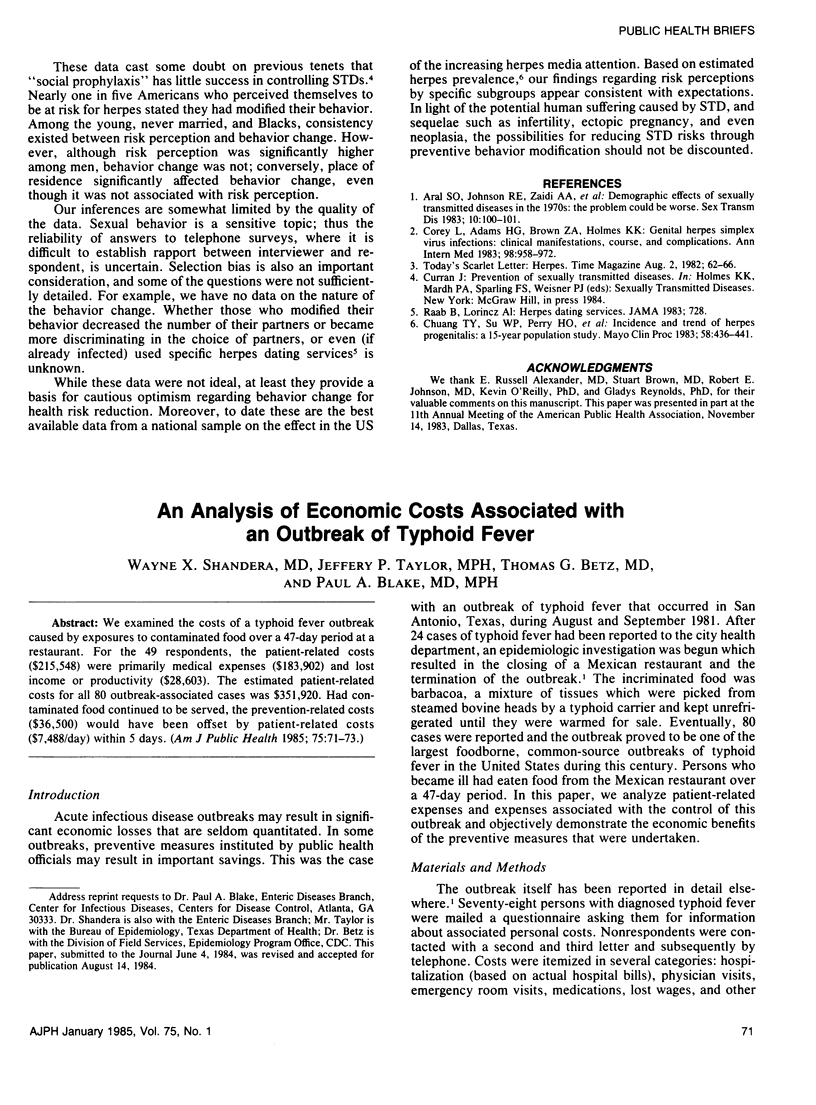Abstract
We analyzed data from a national telephone survey to determine whether awareness of the herpes epidemic led to changes in sexual behavior. Of those surveyed, 67 per cent heard about herpes only within the last two years. More importantly, 45 per cent of individuals perceiving themselves to be at risk stated they had changed their behavior as a result of this perception. Among those never married, 60 per cent stated they were willing to modify their lives to avoid genital herpes.
Full text
PDF


Selected References
These references are in PubMed. This may not be the complete list of references from this article.
- Aral S. O., Johnson R. E., Zaidi A. A., Fichtner R. R., Reynolds G. H. Demographic effects on sexually transmitted diseases in the 1970s: the problem could be worse. Sex Transm Dis. 1983 Apr-Jun;10(2):100–101. doi: 10.1097/00007435-198304000-00010. [DOI] [PubMed] [Google Scholar]
- Chuang T. Y., Su W. P., Perry H. O., Ilstrup D. M., Kurland L. T. Incidence and trend of herpes progenitalis. A 15-year population study. Mayo Clin Proc. 1983 Jul;58(7):436–441. [PubMed] [Google Scholar]
- Corey L., Adams H. G., Brown Z. A., Holmes K. K. Genital herpes simplex virus infections: clinical manifestations, course, and complications. Ann Intern Med. 1983 Jun;98(6):958–972. doi: 10.7326/0003-4819-98-6-958. [DOI] [PubMed] [Google Scholar]
- Raab B., Lorincz A. L. Herpes dating services. JAMA. 1983 Aug 12;250(6):728–728. [PubMed] [Google Scholar]


